Aussie shares in the red as unemployment hits 5.2 per cent
Australian shares have trimmed earlier losses following a better-than-expected jobs report but the market still closed in the red.
News
Don't miss out on the headlines from News. Followed categories will be added to My News.
Australian shares have trimmed earlier losses following a better-than-expected March jobs report but the market still closed in the red.
The S&P/ASX200 benchmark index finished Thursday down 50.4 points, or 0.92 per cent, at 5,416.3 points, having earlier been down by as much as 2.2 per cent. The All Ordinaries index was closed 55.7 points, or 1.01 per cent, to 5,467.6. The Australian dollar meanwhile dropped to 62.86 US cents, down from 63.54 US cents at the close of markets on Wednesday.
Economists say the figure could be the tip of the iceberg as widespread COVID-19 shutdowns and social restrictions were not implemented until the second half of the month, meaning the April data will be worse again.
The major US indexes plunged overnight as dismal economic data and first-quarter earnings reports sent investors scurrying.
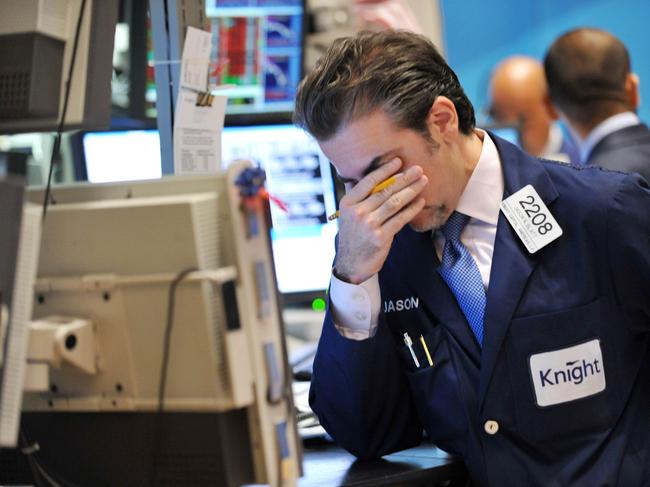
RECORD RETAIL COLLAPSE IN US SEES STOCKS TUMBLE
Earlier, Wall Street traded down after devastating retail sales figures showed just how severely the coronavirus lockdown is hurting the US economy.
And predictions of au unprecedented fall in energy demand sent oil prices to an 18-year low.
At midday on Wednesday (local time) in New York (2am AEST), the Dow Jones Industrial Average declined 604 points, or 2.5 per cent, in midday trading. The S&P 500 fell 2.5 per cent, while the Nasdaq Composite Index dropped 1.7 per cent.
Retail sales plummetted in March as businesses were forced to shut their doors and spooked consumers tightened their belts. It was the biggest fall since records were first kept.
Total sales, which include retail purchases in stores and online as well as auto and gasoline sales and money spent at bars and restaurants, fell 8.7 per cent from the previous month, the US Commerce Department said.
The situation has almost certainly worsened since then. Most states didn’t shut down nonessential businesses until late March or early April.
Meanwhile, the International Monetary Fund’s prediction that the coronavirus pandemic will send the world’s economy into its worst year since the Great Depression has sent global stocks and oil prices sharply lower.
On Wednesday, indexes in London and Frankfurt were down about two per cent and benchmarks in Shanghai, Tokyo, Hong Kong and Sydney closed lower. Wall Street futures were down by over 1.5 per cent.
The price of oil hit a new 18-year low after the International Energy Agency said demand will drop by 9.3 million barrels per day in 2020 overall. Demand in April will hit its lowest since 1995, it said.
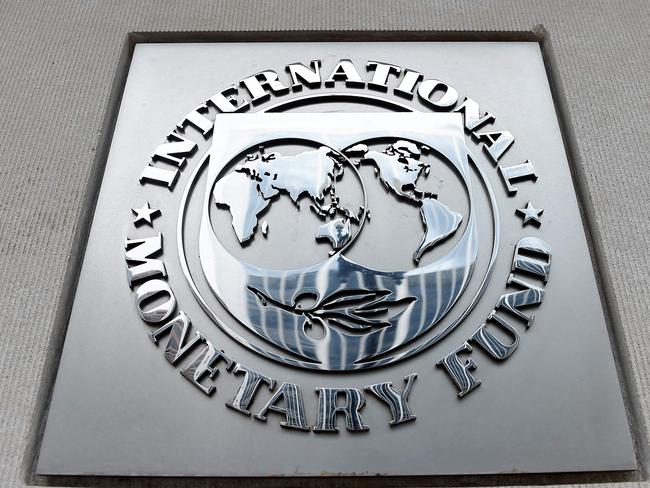
The drop came despite an agreement over the weekend among OPEC and other oil producers to cut output to reflect collapsing demand.
Benchmark US crude lost 40 cents to $19.71 per barrel.
Meanwhile the international standard Brent crude declined $1.02 to $28.58 per barrel in London.
In an early indication of how the pandemic has cratered the US business sector, America’s second biggest bank, Bank of America Corp, said its profit fell 45 per cent in the first quarter.
Its earning were nearly halved as the world’s biggest economy went into lockdown and it was also forced to make provision for billions of dollars worth of potential loan defaults.
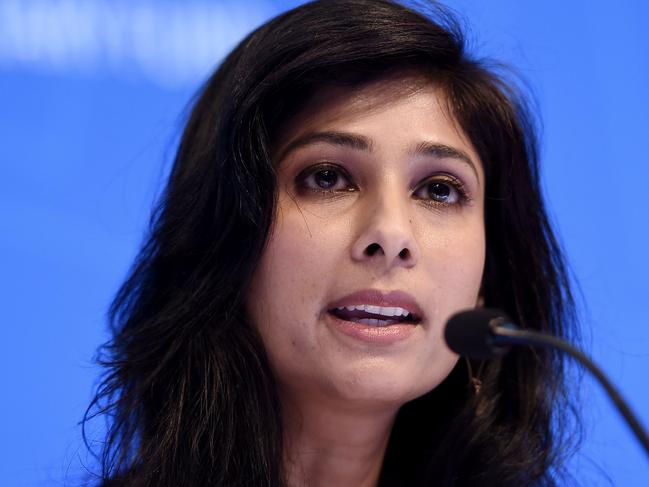
The IMF - which has 189 member countries with a goal of stabilising the world economy - said this year’s global economic output will contract by about three per cent, a far bigger loss than 2009’s 0.1 per cent decline during the financial crisis.
The forecast is a massive turnaround from pre-pandemic days. Back in January, the IMF said the global economy would grow by 3.3 per cent - but that was before governments ordered their nations into lockdown to combat the spread of COVID-19.
“The world has been put in a great lockdown,” the IMF’s chief economist, Gita Gopinath, said. “This is a crisis like no other.”
Ms Gopinath said the cumulative loss to the global gross domestic product, the broadest gauge of economic output, could amount to $A14.3 trillion - more than the economies of Germany and Japan combined.
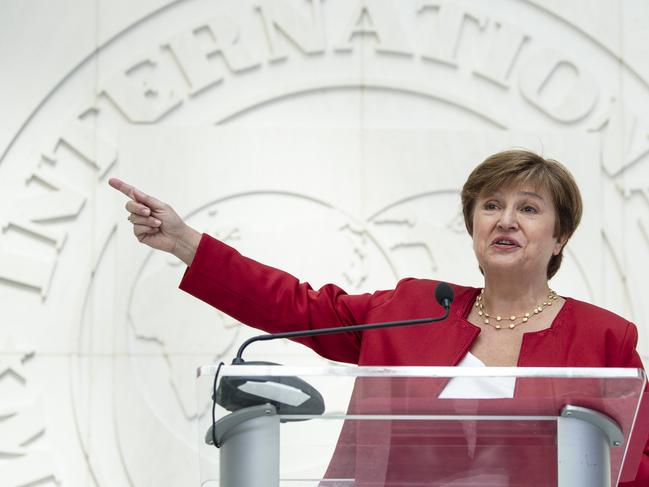
Last week, the IMF’s managing director, Kristalina Georgieva, warned that the world was facing “the worst economic fallout since the Great Depression.”
She said that emerging markets and low-income nations across Africa, Latin America and much of Asia were at especially high risk. And on Monday, the IMF approved $A800 million to cancel six months of debt payments for 25 impoverished countries.
“The IMF forecast a deep economic winter,” said Hayaki Narita of Mizuho Bank in a report.
Investors are focusing on how and when authorities may begin to ease business shutdowns and limits on people’s movements imposed to slow the spread of the coronavirus.
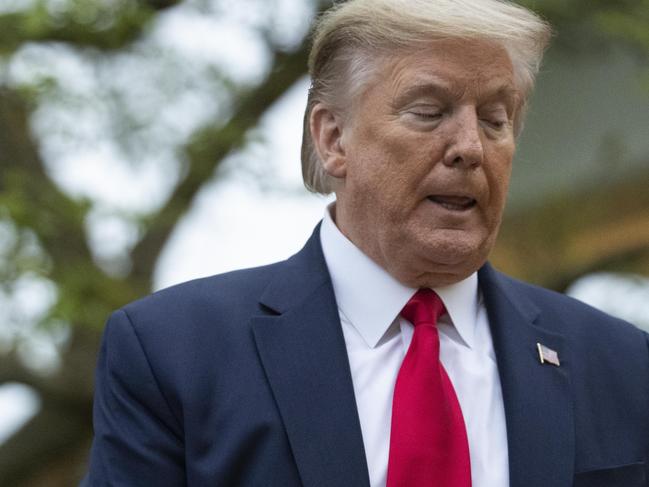
US President Donald Trump has been discussing how to roll back federal social distancing recommendations. US governors are collaborating on plans to reopen their economies in what is likely to be a gradual process to prevent the coronavirus from rebounding.
The discussions follow signs the outbreak may be levelling off in some of the hardest-hit areas, including New York City.
In Italy, Spain and other places around Europe where infections and deaths have begun stabilising, the process of reopening economies is already underway.
Some businesses and industries are being allowed to reopen in a calibrated effort to balance public health and their countries’ economic wellbeing.
The IMF expects economic contractions this year of 5.9 per cent in the United States, 7.5 per cent in the 19 European countries that share the euro currency, 5.2 per cent in Japan and 6.5 per cent in the UK.
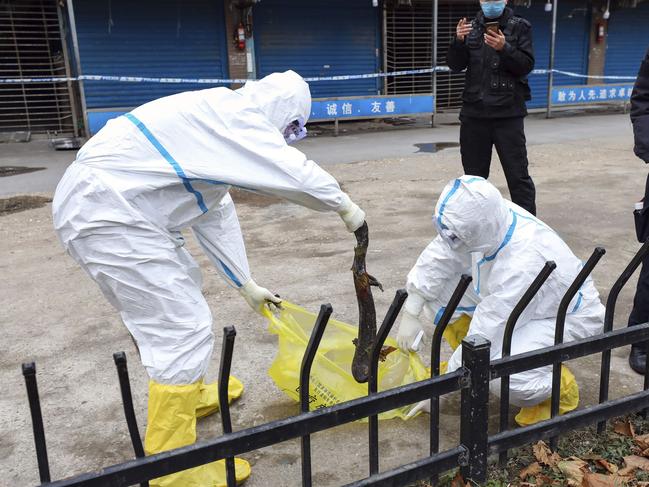
The Fund said China, where the pandemic originated, should scrape together 1.2 per cent growth this year, better than some private sector forecasters who expect little to no growth in the world’s second-biggest economy.
China has reopened factories, shops and other businesses after declaring victory over the outbreak but forecasters say it will take months for industries to return to normal output, while exporters will face depressed global demand.
Wall Street expects profits will fall for most companies in the S&P 500. The focus is on what management teams have to say about what profits look like for the rest of the year.
